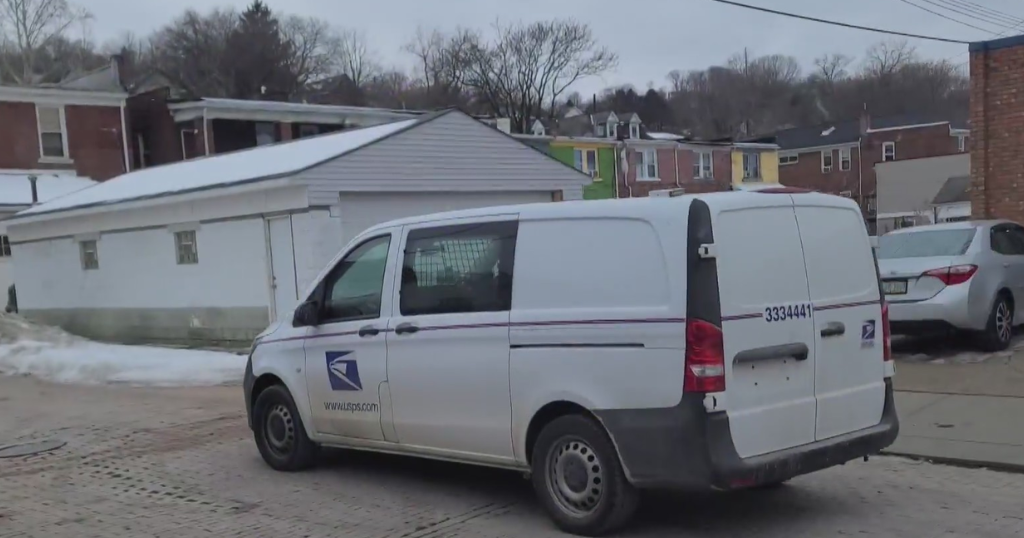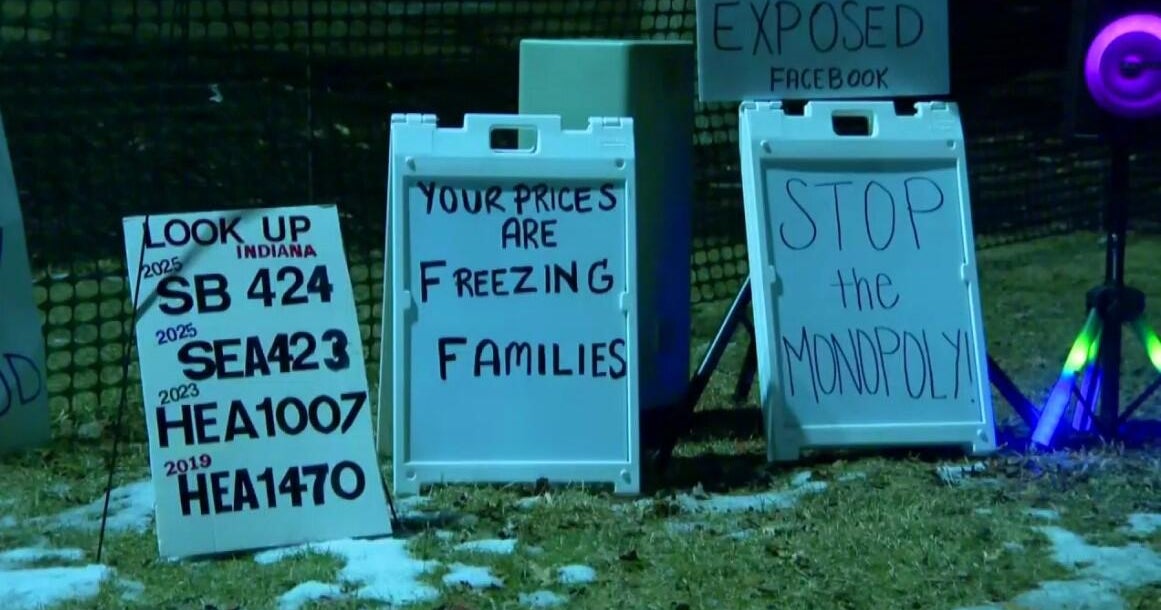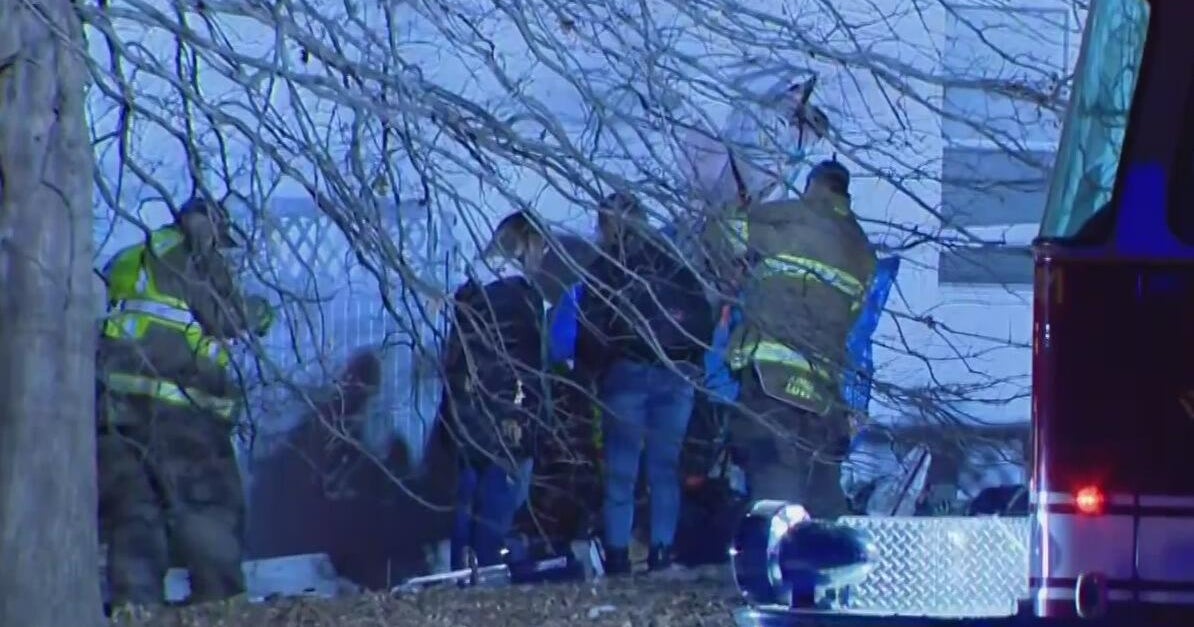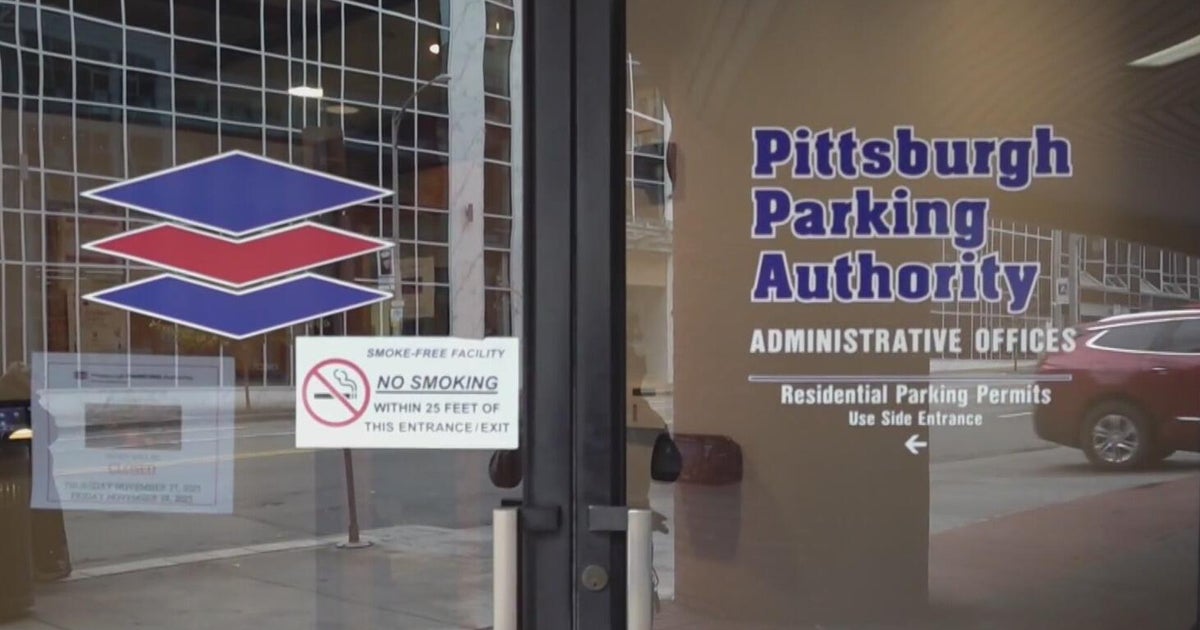Postal Service Confirms Cuts That Will Slow Mail Down
UPDATED 12/05/11 4:24 p.m.
CHICAGO (CBS) -- If you still mail a check to pay your bills, it's going to take longer for them to get where they're going starting in January.
As CBS 2's Susanna Song reports, the U.S. Postal Service on Monday morning announced major budget and service cuts.
As a result of the $3 billion in cuts, first-class mail that used to take just one day to deliver will now take two to three days. Stamps will also rise in cost by 1 cent to 45 cents, starting next month.
LISTEN: WBBM Newsradio Political Editor Craig Dellimore reports
Podcast
The cuts would force the closure of 250 of the nearly 500 mail processing centers around the country, as well as some 3,700 local post offices this coming spring.
Several Chicago processing facilities will be affected. The cuts are expected to close the Irving Park processing center, at 11560 W. Irving Park Rd. near O'Hare International Airport, as well as the Fox Valley and Gary, Ind., processing centers.
Operational changes are also expected to the Main Post Office at 433 W. Harrison St.
But the workers at those facilities will not lose their jobs. They will be reassigned to other locations.
At the Post Office at 540 N. Dearborn St. Monday morning, many people were lined up dropping off letters and boxes. But that does not reflect the overall situation at the Post Office, which is facing bankruptcy and needs to cut its budget dramatically.
This means slowing down the delivery schedule, and thus, check payments, Netflix DVDs and other time-sensitive mail will arrive a day or two later than usual with the change.
Such a thing has not happened since 1971.
Kylia Kummer, a small business owner who is a regular at the Dearborn Street post office, said, "I mail a number of different packages to different countries around the world on a really regular basis."
Kummer owns Lavender in Brown, a shop that specializes in handmade clothing, jewelry, accessories and home goods.
She ships many of her products through first class mail, but with the changes coming to mail delivery next year, she said she's "a little worried, because that – the price affect – will definitely affect the amount of money that I have to charge for the packages."
Mark Reynolds, spokesman for the Chicago district of the post office, said the changes are being driven by a lack of revenue and volume.
"In 2006, we handled 213 billion pieces nationwide. Now that number's down to 170 billion," Reynolds said.
Even though the growing use of email, social media, smart phones and other technology for communication is a large part of what has led to the declining use of the Postal Service, Reynolds said postal officials are not worried more people will turn to the Internet because of slower mail delivery.
"No, I don't think we're totally worried about that. The changes in itself aren't going to drive people further," Reynolds said. "What we are trying to do is put ourselves in the position to be profitable again."
Even for those who rely so much on the Internet, they're willing to use the postal service a little more regularly.
"I'll continue to mail things and if it has to be two days later, three days later, I'll still come here and do it, because you've got to support them," said Tyler Herrin.
In addition to the postal facility closings, a total of roughly 100,000 postal workers nationwide could lose their jobs. That number doesn't affect Chicago area workers. They would be re-assigned to other facilities.
Speaking to reporters in Chicago after addressing a meeting of the Illinois Farm Bureau, U.S. Sen. Dick Durbin (D-Ill.) said Monday that he had mixed feelings about the cuts.
WBBM Newsradio Political Editor Craig Dellimore reports Durbin accepts the inevitability of changes at the Postal Service, especially with email taking so much of the communications business away.
But he fears for people and businesses that will be affected by the cuts, even in his hometown of Springfield.
"I'm not happy. I think Illinois gets hit a little too hard here, but I think we are naïve to believe that there will not be significant changes in the Postal Service," he said.
Durbin said it's clear the post office needs a new business model for the 21st Century, to help stave off bankruptcy; so things like slowing first class delivery a bit might be necessary.
However, he said he's concerned about the closing of mail processing centers, especially since one of the centers that could close is in Springfield, where Durbin lives.
"That's one of them they're talking about and I worry about that, because if you called (Illinois) Secretary of State Jesse White's office, he'll talk to you about the millions of things that they mail out of Springfield … every year," Durbin said. "And now they have to be shipped down to St. Louis on the postal trucks."
He also said he's concerned about talk of possibly ending Saturday mail delivery.
"I'm willing to put that on the table as a part of an overall solution. It hurts some areas and businesses more than others, so I think we need to try to work on an approach to it that may have some form of delivery available, particularly for commercial users where Saturdays are critically important," Durbin said.
Everyday postal customers likewise had mixed feelings about the planned cuts and changes.
"I can understand why they might be having problems, with e-mail and everything; it's more convenient to pay bills online and things like that," said postal customer Samantha Ashley, "but I do think it's important that we have the Post Office and that they continue to function, because there's a lot of things that we just really need the Post Office for, and there's a lot of really good jobs that are created by having the Postal Service, so I would have to see it cut significantly."
"It's people's jobs at the end of the day, but I don't know what to say about it," said postal customer Tyler Herrin. "I use this Post Office all the time, so I'll see a big difference. But I'll continue to mail things, and if it has to be two days later; three days later, I'll still come here and do it, because you've got to support them."
The Postal Service is expecting a record loss of $14.1 billion next year amid steady declines in first class mail volume.
Small town mayors and legislators in states including Illinois, Missouri, Ohio and Pennsylvania cited the economic harm if postal offices were to close, eliminating jobs and reducing service.
Small business owners in many other states also were worried.







